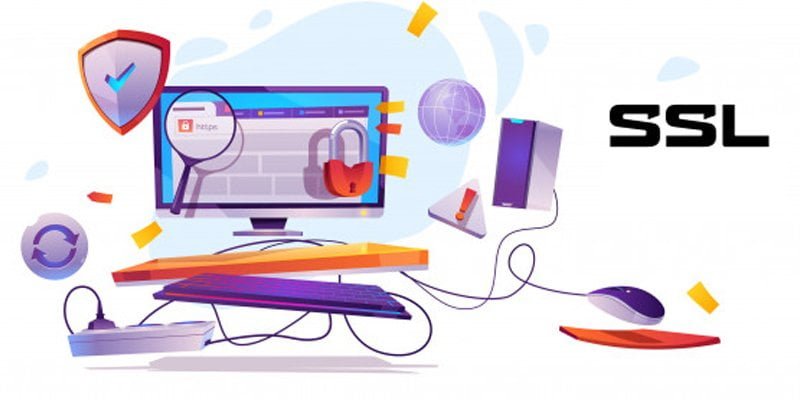SSL is used to secure connections between a user’s computer and the server of the browsing website. This is a very simplistic explanation, but it sums things up. Ultimately, this technology aims to protect data in transit –such as usernames, passwords, credit card information, and the like.
You’ll notice that almost every good e-commerce website will secure checkout and payment pages with SSL. This has been standard practice, and it’s to make sure that the data you enter remains encrypted until it reaches the server it’s destined for. Without SSL encryption, this data remains in plain text and can be read or even altered (i.e., man-in-the-middle attacks) by potentially malicious third parties. A good rule of thumb is to never submit any personal data (particularly financial data) over an unencrypted connection.
Site-Wide SSL: Is It Needed?
Customer trust is the foundation of any business, and Internet-based businesses are no exception. If your business has a reputation for unreliability, insecurity, or dishonesty, you can expect to have a hard time selling your goods or services. Inversely, being known as a reliable, secure, and honest brand will help attract customers. An SSL certificate is one way to show current and prospective customers that you care about their security.
Consumers are being trained to look for the on-screen presence of the padlock or green bar that begins with HTTPS:// as a sign that they can trust the website they are connected to.
While they may not understand the underlying mechanics of SSL/TLS, they do know that it protects their sensitive information. Information like credit card numbers, passwords, phone numbers, and any other personal information that your end-users don’t want to be exposed to.
It’s not enough to protect sensitive information that you store from data breaches and data leaks. You need to protect the information in transit too. And it’s not just your organization you need to worry about; ensuring your vendors have valid SSL certificates can reduce your third-party risk and fourth-party risk and should be part of vendor risk management, third-party risk management, information risk management, and cybersecurity risk assessment programs.
Is an SSL certificate necessary?
Yes. Consumers are trained to leave websites without an SSL certificate, and with Google using HTTPS as a ranking factor, there is no excuse not to have one. Other important reasons to have a valid SSL certificate include:
- Improving conversion rate: Consumers have come to expect the padlock when making purchases online; without it, you lose revenue.
- Improving consumer trust: If you collect any personally identifiable information (PII), you need an SSL certificate. The financial, reputational, and regulatory impact of cyber attacks has never been higher. This includes sites that collect emails.
Do SSL certificates affect search rankings?
Yes, you can increase your search engine rankings and increase user trust by installing SSL site-wide. Google confirmed in 2014 that HTTPS is now a ranking factor. Security is a top priority at Google, and they invest a lot in making sure their services are secure. By encouraging other webmasters to use TLS, they make the Internet safer more broadly.
An SSL certificate will provide a slight boost in rankings and show to current and future customers your organization cares about information security.
Stay notified with latest updates with Medialinks, often regarded as the best website development company in Dubai.
Get in touch now: [email protected]












